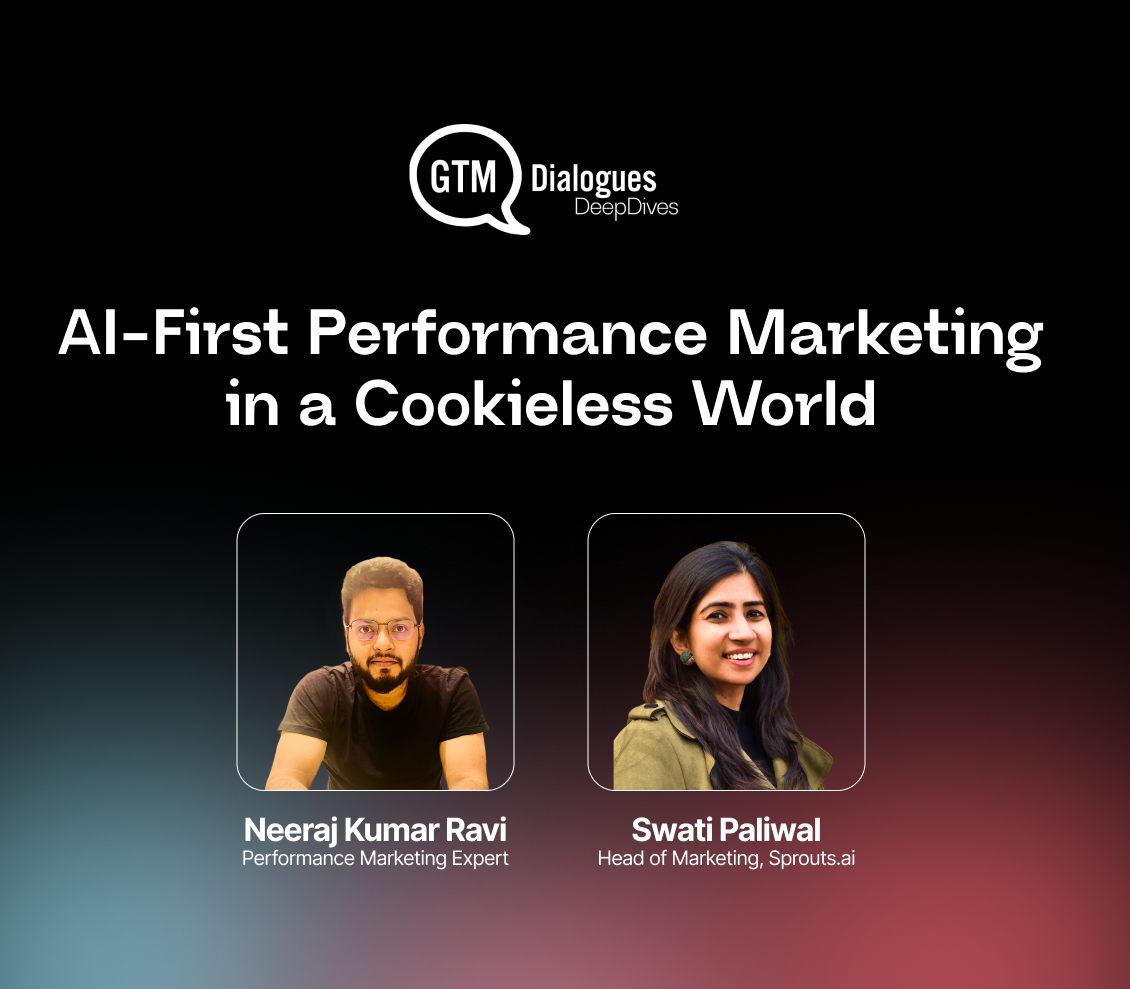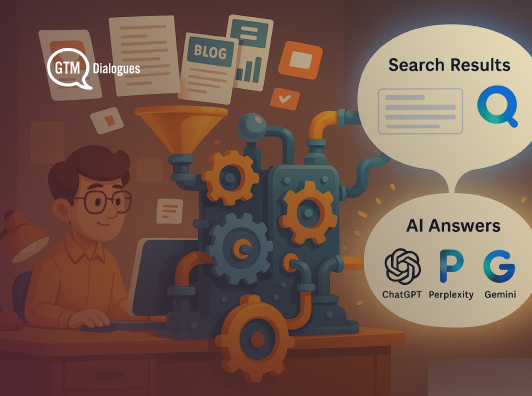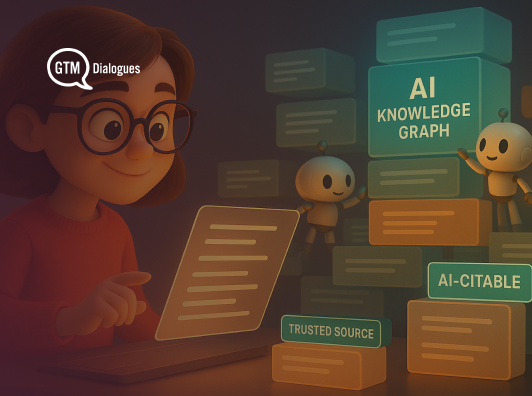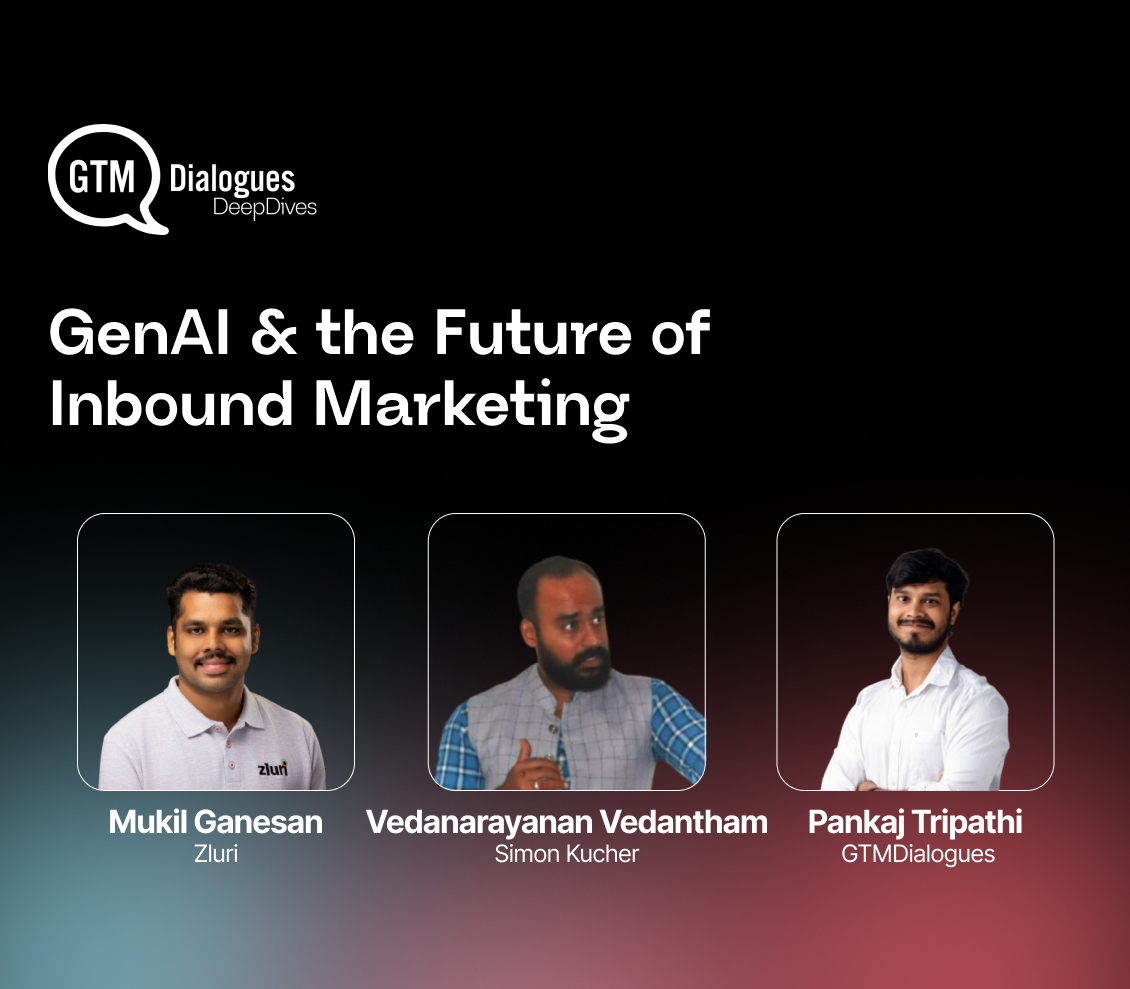In 2025, buyer’s journey doesn’t just include “Googling” things.
Today, prospects type their questions into ChatGPT, Perplexity, or Gemini and expect instant, conversational answers. These tools don’t just list links, they synthesize content, cite a handful of trusted sources, and shape how decisions are made.
And because of that, a big is in making - SEO isn’t dead but it’s no longer enough. To win visibility in this new era, you also need AISO (AI Search Optimization).
This article breaks down what SEO and AISO really mean, how they overlap, where they diverge, and why mastering both is the only way to stay visible in the modern buyer journey.
What is Search Engine Optimization (SEO)?
Search Engine Optimization (SEO) is the practice of making your content discoverable on traditional search engines like Google and Bing. The goal is simple: rank high when someone searches for a problem you solve.
At its core, SEO is about three things:
- Keywords – Matching your content to the exact terms people are searching.
- Backlinks – Earning links from credible sites to boost authority.
- Technical setup – Ensuring your site structure, speed, and schema make it easy for search engines to crawl and index your content.
It still matters because rankings directly influence visibility, clicks, and conversions. A well-executed SEO strategy ensures your website becomes a steady, compounding source of inbound traffic bringing qualified prospects to you without constant ad spend.
What is Artificial Intelligence Search Optimization (AISO)?
AI Search Optimization (AISO) is the practice of making your content discoverable and citable inside AI-generated answers. Instead of showing ten blue links, tools like ChatGPT, Perplexity, or Gemini pull information directly from trusted sources and present it as a synthesized response.
AI tools don’t just scan for keywords. They look for well-structured, context-rich, and authoritative content. To be cited, your content needs to:
- Provide direct, self-contained answers that can stand alone in an AI response.
- Use semantic anchors—clear, context-driven phrasing that AI models can interpret reliably.
- Demonstrate trust signals beyond your website: third-party mentions, consistent branding, and presence across multiple platforms.
You need to include AISO in your marketing strategy too because buyers increasingly start their research in AI tools, not Google. If your brand isn’t cited, you risk being invisible in conversations that happen long before a sales call.
What is common between SEO and AISO?
It’s easy to think AISO has replaced SEO, but that’s not true. The two share a strong foundation, and what works for one often supports the other.
Here’s where they overlap:
i) Content quality & depth
Search engines and AI tools both reward content that’s original, well-researched, and easy to consume. Shallow or generic posts won’t earn rankings or citations.
ii) Domain authority
If your site is trusted in Google’s eyes, it’s also more likely to be trusted by AI models. Authority signals like mentions in credible publications strengthen your position in both ecosystems.
iii) Technical setup
Schema markup, fast page speed, and clean site structure help Google crawl your site. These same factors also make your content easier for AI models to parse and cite accurately.
iv) Backlinks as proof of credibility
High-quality backlinks remain one of the strongest indicators of authority. They boost SEO rankings and increase the chance of AI tools citing your content.
Remember, SEO best practices form the baseline for AISO. If you’re already strong in SEO, you’re halfway there.
How AISO is Different from SEO
While SEO lays the foundation, AISO introduces new rules for visibility in AI answers.
Here’s where the playbook shifts:
i) Citation readiness
Google wants relevance, but AI tools need content that can be quoted. That means short, self-contained sections, clear definitions, and stat-backed claims.
ii) Semantic anchors
Keywords alone won’t cut it. AI models look for context-rich phrasing and sentences that explain both the “what” and the “why.” For example, not just “SEO is important,” but “SEO is important because it drives organic visibility and reduces paid acquisition costs.”
iii) Distribution diversity
SEO is website-centric. AISO is ecosystem-centric. AI tools cite from blogs, PDFs, reports, podcasts, and even community posts. If your brand only publishes on its website, you’ll miss citations.
iv) Perception signals
Backlinks help SEO, but AI goes further. Mentions in media, consistency across platforms, and presence in forums or knowledge bases all serve as credibility checks for AI-generated answers.
Why You Need Both SEO and AISO
Some founders ask: Should I prioritize SEO or AISO? The reality is you can’t afford to pick one.
SEO fuels steady inbound traffic
Ranking in Google ensures you’re discoverable for high-intent searches and builds a long-term growth engine.
AISO earns authority in AI-driven answers
Being cited inside AI tools gets your brand into buyer conversations early, often before they even visit your website.
Together, they maximize reach
SEO captures users who still search traditionally. AISO secures visibility with users who prefer AI answers. Combined, you cover the entire discovery journey.
Ignoring one creates blind spots. Double down on both, and you’ll dominate visibility across Google and AI-powered tools.
Get Started with SEO and AISO Simultaneously
The good news is you don’t need two separate playbooks. With the right approach, you can build for SEO and AISO at the same time. Here’s how:
i) Audit your existing content
Check if your top-performing pages are both SEO-optimized (keywords, backlinks, technical health) and AI-friendly (clear definitions, quotable sections).
ii) Prioritize pillar pages and thought leadership
Long-form, authoritative content not only ranks well on Google but also provides AI with reliable material to cite.
iii) Write in quotable chunks
Use short paragraphs, strong subheads, and stat-backed sentences. This makes your content scannable for humans and citable for AI.
iv) Distribute across ecosystems
Don’t stop at your website. Publish PDFs, LinkedIn posts, community answers, and guest articles to increase your chance of being cited outside your domain.
v) Track both SEO and AISO signals
Monitor keyword rankings for SEO, while also checking tools like Perplexity or ChatGPT to see if your content shows up in AI answers.
Start small: Update one cornerstone blog with SEO and AISO practices together. That single step compounds into dual visibility.
AISO is Not the Replacement to SEO
The future of search isn’t a choice between SEO and AISO, it’s a blend of both. SEO gets you clicks in Google. AISO gets you citations in AI answers. Together, they give your brand the visibility it needs across every stage of the modern buyer journey.
Marketers who act now will stay ahead. Those who don’t risk disappearing from both search results and AI-driven conversations.
The next step is simple: start aligning your content for both. Audit, restructure, distribute, and measure. Each move strengthens your digital presence on two fronts.
Frequently Asked Questions
Will AISO replace SEO?
No. SEO remains essential for ranking in Google, while AISO ensures visibility in AI-driven answers. They complement, not replace, each other.
How do I know if my content is cited by AI tools?
Run your queries on ChatGPT, Perplexity, or Gemini and see which sources appear. Some AI tools highlight citations directly, giving you visibility into whether your brand is referenced.
Do backlinks matter for AISO?
Yes, but differently. Backlinks boost your authority for SEO, while mentions and references across trusted sites, forums, and publications strengthen your chances of AI citation.
Which should I prioritize if I have limited resources?
Start with SEO basics - keywords, content quality, and technical setup. Then, layer AISO practices like writing in quotable chunks and distributing content beyond your website.
Is AISO only relevant for large companies?
Not at all. Early-stage startups can benefit even more. A well-cited insight in AI answers can give a smaller brand authority alongside much bigger competitors.














